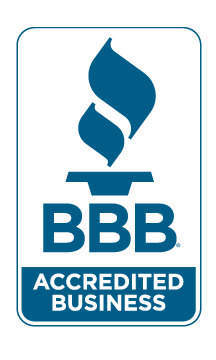In the world of life insurance, agents are given an incredible opportunity: the chance to build something that lasts. The chance to create an income stream that grows over time, compounding with each year of consistent work.
But here’s the reality that many agents face: too many of them don’t actually build a business. Instead, they chase after quick commissions and temporary successes, never focusing on long-term stability or growth. And while that might work for a short while, it will never provide the same rewards as building a true business.
It’s easy to get caught up in the daily grind, focusing on the immediate transaction. But a real business doesn’t operate that way. It’s built on consistency, structure, and long-term thinking. It’s about tracking data, analyzing trends, and making decisions based on that information. It’s about knowing your numbers, your clients, and your performance — month after month, year after year.
The difference between a business and a book of business comes down to the mindset behind it. A business owner tracks, manages, and grows their operations. A book of business owner just writes policies and hopes they stay on the books.
But when you truly build a business — one that thrives on consistency and reliability — the rewards are far greater. It’s about creating a foundation that will support you long into the future, not just for a few months or a year.
What Does It Mean to Build a Real Business?
Building a business is about more than just making money in the short term. It’s about creating systems that allow you to manage and grow your operations over time. And it’s about setting yourself apart from the many agents out there who are just chasing after quick sales.
Think about it: in any other business, you’d track your revenue, expenses, and growth on a regular basis. In life insurance, too many agents neglect to do this. They don’t track their persistency rates. They don’t review their performance. They don’t know their close rate or lead source metrics.
That’s not running a business. That’s flying blind.
A real business owner keeps track of their performance month after month. They review their production and see where it’s coming from. They analyze which strategies are working and which ones need adjustment. It’s about making decisions based on data and continuously improving. This is the foundation that makes a business sustainable.
If you want to build a real business, you need to treat your career with the same seriousness as any other entrepreneur would treat theirs.
The Importance of Persistency
Let’s talk about persistency. Anyone can write a policy, but not everyone can keep that policy on the books. The agents who are truly building a business understand this. They know that persistency is not just a number on a report — it’s a reflection of their professionalism.
A high lapse rate doesn’t just cost you in commissions. It hurts your credibility with the carriers. It reduces the value of your renewals and weakens your future income.
But when you focus on persistency, you’re building something that lasts. You’re making sure that the work you do today continues to pay off in the future. That’s why strong persistency is the cornerstone of a real business.
To maintain persistency, you need to do more than just sell policies. You need to understand your clients, communicate clearly, and ensure that their coverage fits their needs. It’s about following up and providing excellent service long after the policy is written.
NSFs: A Sign of Instability
No one likes to talk about chargebacks, NSF drafts, or payment issues, but they’re a reality in the life insurance industry. And here’s the truth: NSFs aren’t just an accounting problem; they’re a business problem.
When agents have NSF chargebacks, it doesn’t just affect their personal finances. It creates friction with carriers and damages relationships. It reflects poorly on your professionalism, and in the long run, it’ll hurt your ability to scale and grow.
A real business manages its cash flow and operations carefully. This isn’t just about writing business; it’s about keeping that business stable. You can’t afford to treat your financials like a side project. If you’re bouncing payments, you’re not building a business; you’re scrambling to keep things afloat.
Managing NSFs is a key part of being a responsible business owner. It’s about making sure you’re on top of your finances and building long-term financial stability.
Systems: The Backbone of a Business
Systems are what separate business owners from those who are just getting by. Without systems in place, you’re left to your own devices, guessing and reacting to each situation as it comes.
A real business runs on structure. It runs on repeatable processes that help you track leads, manage clients, review performance, and ensure that everything is running smoothly. That’s why the systems you use — whether it’s CRM software, task management, or production tracking — are critical to building a sustainable business.
Without these systems, you’re essentially flying by the seat of your pants. But with them, you create consistency and predictability. You can manage your clients more effectively, track your production goals, and ensure that your business is always moving forward.
Treat Your Career Like a Business
At Legacy, we believe that agents aren’t just employees; they are business owners. When you take ownership of your career, you stop asking, “How can I make money today?” and start asking, “How can I build something that lasts?”
This mindset shift is essential to building a real business. It requires discipline, consistency, and a long-term perspective. It’s about understanding that the work you do today — whether it’s tracking your persistency or managing your finances — will pay off for years to come.
Treat your career as a business, and you’ll see the difference. You’ll stop chasing quick sales and start building a foundation that supports you for the long haul. Your income will become more predictable, your client relationships will grow stronger, and your long-term success will be inevitable.
Conclusion: The Path to Long-Term Success
In the life insurance business, you’re given a unique opportunity: to build something that can last. But to make it happen, you have to treat it like a real business.
That means setting standards. It means tracking your numbers. It means focusing on persistency, managing your finances, and building systems that support your growth.
Building a business isn’t easy. But it’s worth it. Because when you build something real, it compounds. It grows. It pays off for years.







